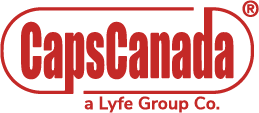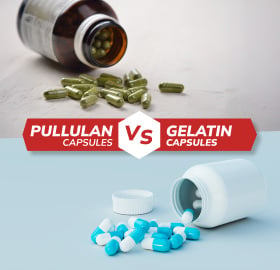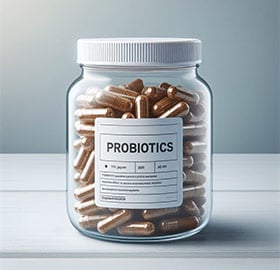Making your formula accessible for the majority of the population is essential.. There are different ways to ensure the success of your product in different cultures and religious communities, but the most important one is through the adequate certifications, including food certification that guarantees compliance with specific dietary and ethical standards.
Halal and Kosher are terms used to describe what is permissible under Islamic and Jewish religious regulations. Halal is an Islamic phrase that means permissible or legal. Although halal can refer to anything that is approved by Islam in a general sense, it is most commonly used in the context of appropriate eating practices, particularly when it comes to meat intake. Food that is proper or fit for ingestion according to Kashrut, the Jewish dietary rule, is referred to as kosher.
Differences between Kosher and Halal
Halal:
- It is related to the Islamic dietary law
- Means permissible in Arabic
- The roots of Halal can be found in Quran
Kosher:
- Is related to Jewish dietary law
- Gotten from the Hebrew word “Kashrut,” and that implies appropriate or fit
- The roots of Kosher can be found in the Torah
Why are these certifications important?
Halal certification allows you to sell your products in a variety of nations, particularly those with a large Muslim population. The accreditation allows you to quickly get into the Halal market. It assists you in meeting the requirements of importing countries while exporting products. Only Halal certified products will be accepted by Halal consumers. This is why many companies seek halal certification USA agencies to ensure market access in North America and beyond.
Halal certified items are in high demand, particularly in Southeast Asia and the Middle East, where Halal products are most widely distributed. More over 1.8 billion people worldwide follow Islam, accounting for more than 24% of the world's population. It is, without a question, a critical market for any consumer product development. Furthermore, in many Islamic nations, only halal-certified foods and products are permitted.
In Hebrew, the word “kosher” means “fit” or “appropriate,” and it refers to dishes prepared in line with Jewish dietary regulations. For nearly 3,000 years, the Jewish people have followed kosher law.
Certain types of meat, birds, fish, and insects are not kosher, according to the Bible. Animals such as pig, rabbit, and horse meat, fowl such as owl and stork, and fish such as catfish, eels, shellfish, shrimp, and octopus are examples of non-kosher cuisine. In addition, in order to render meat and fowl palatable, a professionally trained specialist must butcher them in a painless ritual manner.
A considerable number of potential customers insist that products be certified kosher. Many non-Jews look for kosher food certification as a symbol of a product's high quality level in addition to the world's more than 14 million Jewish individuals who opt to follow the kosher dietary restrictions.
How Can your Capsules be Kosher certified?
- All ingredients used in the product must be kosher-compliant.
- All derivatives, tools, and machinery must have no trace of non-kosher substances.
- For gelatin capsules, only gelatin derived from an animal that can be consumed under the kosher dietary laws (i.e., avoid pork), that was killed according to these laws and was certified as being kosher can be used.
How Can Your Capsules be Halal Certified?
- For animal products, ensure that the animals were slaughtered in a single cut and that these animal products have not been in contact with animals slaughtered using other methods.
- Do not use pork or pork derivatives in the manufacturing process.
- Ensure that all derivatives, tools, and machinery have no trace of non-halal substances.
Businesses aiming to serve diverse global markets often benefit from pursuing both halal and kosher certification to ensure broad market compliance and consumer trust.
At CapsCanada, we have the certifications that meet your requirements and needs. Discover more about them.



.jpg)












